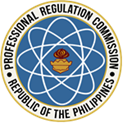iLEARN, iCREATE, iSHARE DIGITAL CAPABILITIES: Empowering Educators for 21st Century Learning
DEPARTMENT OF INFORMATION AND COMMUNICATIONS TECHNOLOGY - LUZON CLUSTER 3
PROGRAM DESCRIPTION
This program is designed to empower educators with the essential skills and knowledge needed for 21st-century learning. Through this initiative, educators will develop digital proficiency, enhance their creativity in instructional design, and learn effective strategies for sharing knowledge and resources in the digital age.
OBJECTIVES
At the end of the training sessions, participants are expected to:<br/>• Apply the concepts, standards, and principles of digital literacy, competencies, and capabilities.<br/>• Analyze various digital literacy standards and competencies frameworks vis-à-vis the iLEARN, iCREATE, iSHARE digital capabilities for educators.<br/>• Suggest ways to achieve multiple literacies according to the iLEARN, iCREATE, iSHARE digital capabilities framework.<br/>• Discuss ICT policies and explain their implications for teaching and learning.<br/>• (National Standards for Quality Online Teaching, QualityMatters, PPST Domain 4.5)<br/>• Value the use of ICT in the teaching and learning process.<br/>• (Based on ISTE standards for Educators, PPST Domain 4.5)<br/>• Identify the competency standards of ICT for teaching and learning.<br/>• (National Standards for Quality Online Teaching, QualityMatters, PPST Domain 1.3)<br/>• Define and describe Open Educational Resources (OER).<br/>• Describe the different types of licensing.<br/>• Curate, review, and evaluate existing OER.<br/>• Create OERs aligned with the DepEd Most Essential Learning Competencies (MELC).<br/>• Define Curriculum Alignment.<br/>• Cite the importance of curriculum alignment.<br/>• Differentiate horizontal alignment from vertical alignment of the curriculum.<br/>• Integrate TechTools appropriate for the curriculum to improve Student Learning Outcomes.<br/>• Internalize the concept of Digital Education.<br/>• Plan, design, and create a blended course in a collaborative environment.<br/>• Determine the quality assurance standards and competencies.<br/>• Identify monitoring and evaluation strategies and reporting.
ABOUT

GENERAL INFORMATION
OTHER INFORMATION
iLEARN, iCREATE, iSHARE DIGITAL CAPABILITIES: Empowering Educators for 21st Century Learning
Professional Teachers
Seminar
OTHER INFORMATION
PTR-2021-317-4137
Free Registration
500 target no. of participants
20 hours

